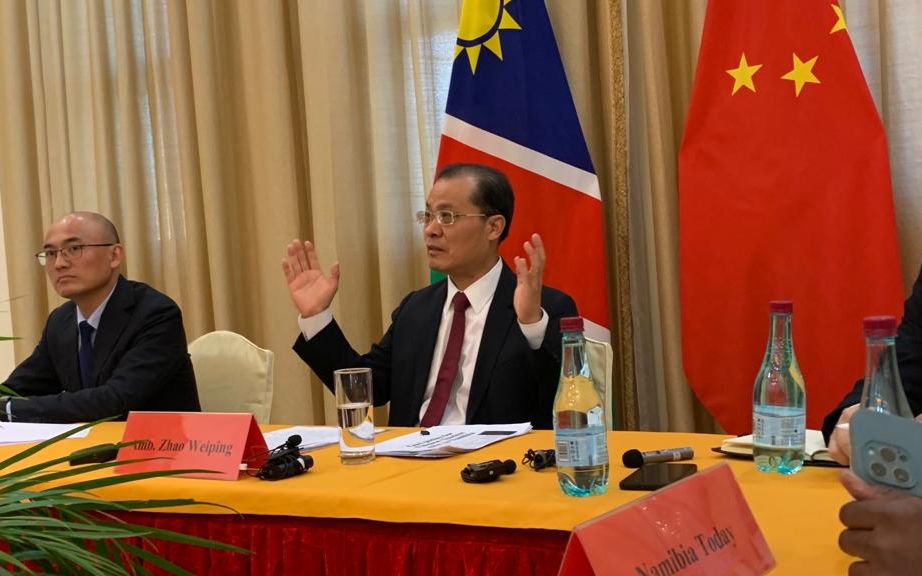
Namibia hasn't borrowed from China in eight years, says ambassador
Your go-to source for in-depth coverage of political developments, economic trends, social affairs, and vibrant cultural stories from across the continent.

Namibia hasn't borrowed from China in eight years, says ambassador
The Namibian government has not taken out any loans from China for approximately eight years, revealed Chinese Ambassador Zhao Weiping during a press conference in Windhoek on Thursday.
Addressing the latest developments in bilateral relations between China and Namibia, Ambassador Zhao emphasized Namibia’s responsible borrowing history.
“Namibia has been prudent in borrowing. It borrowed over a billion Namibian dollars in the past and has always honored its repayment commitments,” he stated.
He underscored that China does not provide loans to African countries as favors but for mutual benefit.
Over the years, the Namibian government has welcomed Chinese investors in sectors such as road construction, railways, infrastructure development, and mining.
However, some analysts have expressed concerns over Namibia’s economic dependency on China.
Last month, during the 2024 Forum on China-Africa Cooperation Summit in Beijing, President Nangolo Mbumba held meetings with several Chinese multinational corporations interested in investing in various sectors of Namibia’s economy, including infrastructure, manufacturing, mining, tourism, digital technologies, and renewable energy.
Mbumba encouraged Chinese companies to “focus on win-win partnerships and mutually beneficial investments,” which he believes will contribute to Namibia’s development agenda.
The discussions come amidst ongoing global scrutiny of China’s economic influence in African nations, with debates centering on debt sustainability and the strategic implications of large-scale Chinese investments.
The Namibian government’s strategy continues to prioritize economic diversification and sustainable development, balancing international partnerships while safeguarding national interests.
As Namibia navigates its economic path forward, its relationship with China remains pivotal, shaping the trajectory of both nations’ development aspirations.
I am an avid African news observer, and an active member of Daily Mail Africa.
I’m Passionate about staying informed on diverse topics across the continent,
I actively contribute to publishing on political, economic and cultural developments in Africa.